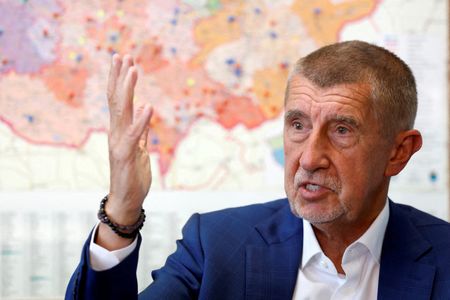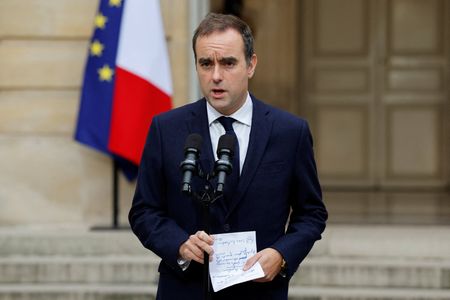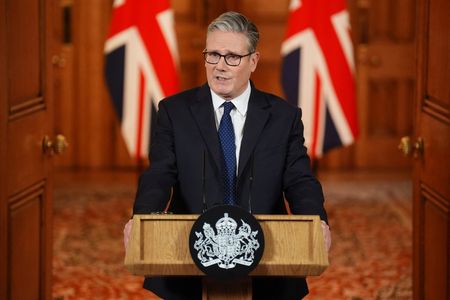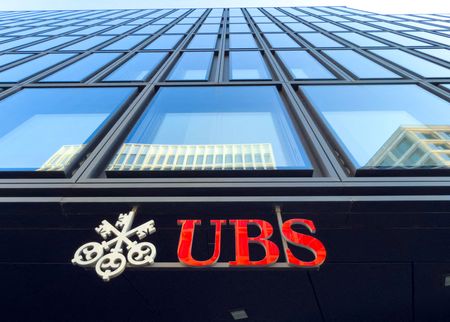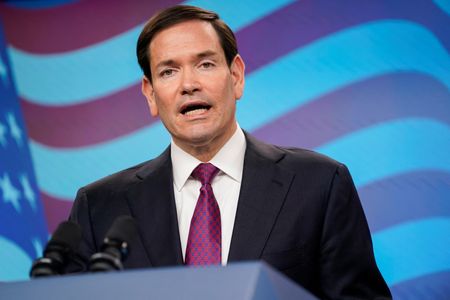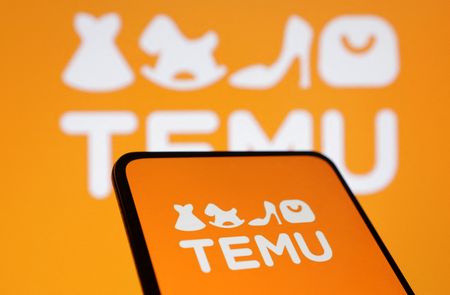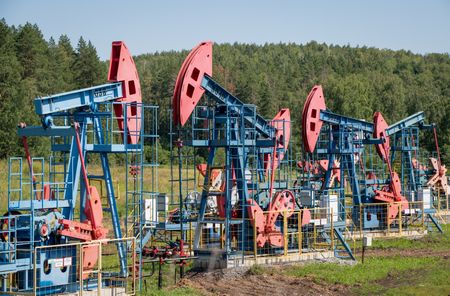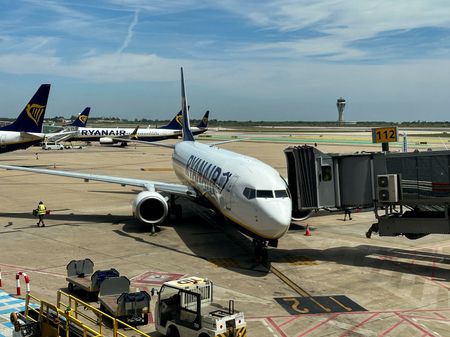PRAGUE (Reuters) -Czech election winner ANO hopes to conclude negotiations with two small parties on forming a new government by the beginning of November, party leader Andrej Babis said on Wednesday.
The billionaire former prime minister’s populist ANO group won the October 3-4 parliamentary election and is on track to replace the centre-right cabinet of Prime Minister Petr Fiala.
Babis is in talks with the right-wing, eurosceptic Motorists and the far-right, anti-EU and anti-NATO SPD parties on forming a coalition government which would have 108 out of 200 seats in the lower house of parliament.
Babis said an outline of an agreement could be done by the end of this week, and a complete coalition deal before the new lower house meets for the first time on November 3.
UKRAINE AMMUNITION AID TO CONTINUE?
“I hope that by the time of the new house (first meeting) we will manage to complete the coalition agreement,” Babis said in a Facebook video message.
The first session will elect a new house speaker before the formal resignation of the outgoing cabinet – the earliest moment a new prime minister can be appointed.
Babis, a Donald Trump fan and ally of Hungary’s Viktor Orban, had pledged to scrap a scheme to source ammunition for Ukraine through Czech arms traders and producers with Western funding, calling it overpriced and lacking transparency.
But he has softened his opposition to the scheme as President Petr Pavel urged parties to keep the programme. Pavel has a role in government talks, appointing the next prime minister.
On Tuesday, Babis said the initiative was a good idea “in principle” and he would “reevaluate” it and bring more transparency. He repeated his earlier view that it may be shifted under NATO.
The initiative has the support of the Motorists but not the SPD, which wants to cut all aid to Ukraine, including for hundreds of thousands of refugees settled in the Czech Republic.
Babis has reiterated since the election his government would reject an EU emissions allowances system for motor and household fuels, due in 2027, and an agreement on sharing immigration burdens to take effect next year.
(Reporting by Jan Lopatka; Editing by Aidan Lewis)

